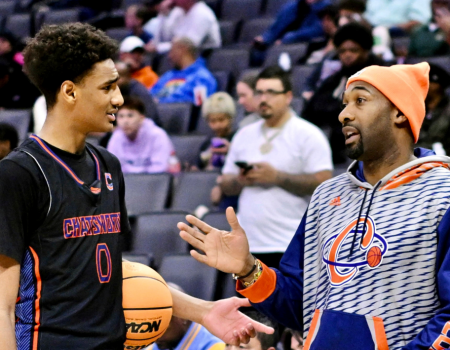A highly controversial video game that was released under the title ‘Revenge on Gold Diggers’ has sparked huge debate over its portrayal of women – after it surged to the top of streaming charts.
Released on gaming platform Steam China on June 19th, it was billed as a live action ‘anti-fraud’ game in which the aim of the game is to spot deception before it happens.
However, all of the ‘baddies’ are women out to manipulate, with male protagonists ready to ‘fight to the death’ against them – and critics say it will appeal to and encourage incels, men who blame women for their romantic failure.
The blurb for the game says its plot centres around a character called Wu Yulun, ‘a man who was once deeply hurt by gold diggers’ – and was apparently inspired by real-life experiences of the games’ Hong Kong creators.
Players are invited to ‘navigate between several glamorous and highly adept female characters, and experience an emotional hunt that is gripping with every step.’
After it became an unexpected hit, a maelstrom of controversy quickly unfolded with many calling the game misogynistic and deeply offensive.
It’s title was changed to ‘Emotional Anti-Fraud Simulator’ within 24 hours of its release.
Chinese artist Xu Yikun told BBC News the term ‘gold digger’ is rarely attributed to men in the country, saying: ‘If you have a rich boyfriend, you are called a gold digger.

Within 24 hours of its release on the Steam gaming platform, video game Revenge on Gold Diggers, which centres around a character called Wu Yulun, ‘a man who was once deeply hurt by gold diggers’, the title had sparked huge controversy in China
‘If you try to make yourself look pretty, you are called a gold digger… Sometimes the label is used on you merely for accepting a drink from someone.’
Others have defended the narrative, saying: ‘Would men criticise a game if it were titled “Womaniser Game”?’
In China, one newspaper said the game labelled ‘an entire gender as fraudsters’ – but the Beijing Youth Daily said it simply highlighted the growing issue of scams and emotional fraud in modern China.
According to the country’s National Anti-Fraud Centre, around £204million was lost to romantic scams in 2023.
A Beijing-based video producer named Huang told the New York Times that the game ‘very precisely taps into the intense gender antagonism currently sweeping through Chinese society.’
He says the video game will appeal to incels, or involuntary celibates, men who believe they are unable to have sex or form relationships with women – often because they deem themselves not attractive enough.
They often blame women and are extremely hostile towards them as a result.

The game taps into China’s ‘intense gender antagonism’, said one Beijing-based observer – who speculated that it will attract incels
One Chinese man, 23, who is unemployed, told the newspaper: ‘I hate women, though I still want to fall in love, just a little bit.’
In Australia this week, parents were being warned their children could have access to hundreds of online games that simulate and encourage horrifying scenarios including rape, incest and child sex abuse.
When searching on Steam, at least 232 results matched ‘rape’, a campaign group called Collective Shout revealed.
On the same day, a search for ‘incest’ turned up 149 results.
The game titles are the stuff of parents’ nightmares, from ‘Incest DEMO’ and ‘Incest Twins’, to virtual reality ‘Reincarnation in another world going to rape’.
The latter allowed players to explore a virtual ‘town’ raping all the women who are non–player characters (NPCs) – avatars who are not controlled by a player.
Another game allowed players to ‘set up’ hidden surveillance at a female neighbour’s home to secretly record her sexual acts.
Graphic imagery, which has been seen by Daily Mail Australia but is too disturbing to publish, included violent sexual torture of women and children, including incest-related abuse.
Kelly Humphries, who lives in central Queensland, is a survivor of familial child sexual abuse and has shared her horror at the games.
‘There’s not a lot that surprises me anymore but this was shocking,’ she told Daily Mail Australia.

A campaign group found a virtual reality game that encouraged players to rape characters
In another game, players’ avatars would be ‘punished’ in a violent manner if they lost

Experts have warned gaming platforms used across all age groups, including children, have listed video games that allow players to rape characters. In one game, a player could pretend to be a man recording a neighbour performing sexual acts
‘I look at that research and I’m just so ashamed, angry and frustrated because I don’t understand why this behaviour is acceptable for big companies.’
Ms Humphries has worked in law enforcement and is an activist raising awareness about abuse, including as an ambassador for Collective Shout.
‘To see this violence depicted in such a horrific, brazen and humiliating way pushes survivors back into themselves,’ she said.
‘It completely undermines their experiences by gamifying and almost making fun of their true experience.’
Ms Humphries said the games will take a psychological toll on players, particularly on young people who interact online more often than older generations.
‘(The games) are normalising this behaviour,’ she said.
‘(Young people) are either going to act out that behaviour or they’re going to be a victim and suffer silently.’
This was echoed by University of New South Wales’ Professor Michael Salter, who said the games are ‘part of subcultures online that normalise sexual abuse’.
Professor Salter, who is also director of the East Asia and Pacific branch of Childlight, said the content will reinforce the acceptability of violence for children or people with problematic behaviour if they play the games.
He said that, while the games breach national laws, platforms like Steam and Itch.io operate internationally and as such, do not follow Australian standards.
Both Ms Humphries and Professor Salter signed an open letter to companies including PayPal, Mastercard, Visa, and Paysafe Limited, to request they cease processing payments for gaming platforms which host rape, incest and child sexual abuse–themed games.
Professor Salter said there are no rules in international law to manage the issue so ‘payment services effectively become a de facto regulator’.
Daily Mail Australia has contacted Valve Corporation, which operates Steam, and the platform Itch.io, which is also named in the open letter, regarding the claims.
Valve is understood to have changed its rules earlier this week, adding a clause prohibiting content that broke rules set out by payment processors including ‘adult content’.

Campaigner Kelly Humphries (pictured) said the games undermine abuse survivors’ experiences
There were initially 14 clauses which banned content including hate speech, malware, sexual content of real people or exploitation of children, Automaton Media reported.
Professor Salter has also raised concerns about discoveries by his team which noticed people breaching others’ boundaries on new technology platforms.
‘Gaming services often forge ahead with designs without building in safety,’ he said.
‘(On virtual reality platforms), we see kids adopt avatars that are highly sexualised adult avatars and then interact with actual adults.’
He said the issue comes down to regulation and the need for clear, enforceable content rules to protect children, adding that parents can take action at home too.
‘It’s important to have discussions with kids about the gaming services they are on and the content they are seeing,’ he said.
‘It’s not as easy as monitoring games so parents should set clear rules about types of games they are permitted to play and the types they are not allowed to play.’
Another suggestion was that parents explain to children that their behaviour online matters and speaks to their character.
‘There is a pervasive view that online behaviour is not real, that it is not serious,’ he said.
‘So it licenses a range of behaviours that are antisocial and transgressive.’








No Comment! Be the first one.